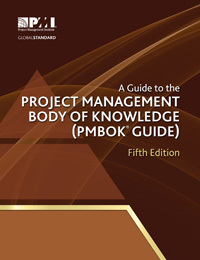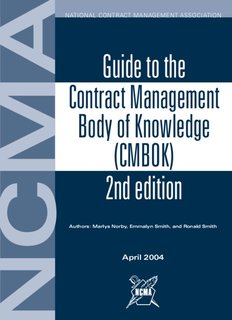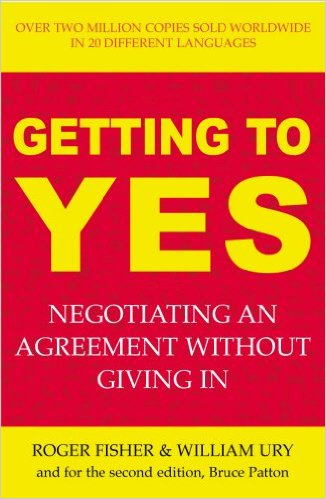 «Project Contract Management and Negotiations Tactics» Workshop
«Project Contract Management and Negotiations Tactics» Workshop
(1) ΣΕ ΠΟΙΟΥΣ ΑΠΕΥΘΥΝΕΤΑΙ Η ΕΚΠΑΙΔΕΥΣΗ
Κάθε project για την υλοποίησή του περιλαμβάνει τουλάχιστον δύο μέρη: Τον buyer και τον seller. Μεταξύ αυτών των δύο μερών υπογράφεται μια σύμβαση (contract) για την ολοκλήρωση του έργου. Συνήθως ο seller σε ένα project γίνεται buyer επίσης γιατί μέρη του έργου τα αναθέτει σε τρίτα μέρη (sub-contractors, sellers, vendors, κλπ.)
Έτσι πολλές φορές, το κατά πόσο το έργο θα εξελιχθεί ομαλά, εξαρτάται και από το πόσο καλά έχουν επιλεχθεί και σχεδιασθεί οι συμβάσεις μεταξύ των διαφόρων συμβαλλομένων σε ένα έργο.
Αυτό το διήμερο workshop καλύπτει όλα τα βασικά θέματα σχεδίασης, οργάνωσης και τεκμηρίωσης των διαπραγματεύσεων μιας σύμβασης και απευθύνεται κυρίως σε:
• Project Managers/Leaders
• Senior Management / General managers
• Project team members
• Project administrators / Systems development managers
• Όσους επιθυμούν να έχουν γνώση της διαδικασίας procurement στα πλαίσια ενός project
• Γενικότερα όσους εμπλέκονται με το Project Management σε όλους τους τομείς του Οικονομικού φάσματος και θέλουν να κατανοήσουν το ρόλο των εμπλεκομένων σε μια σύμβαση, είτε από την πλευρά του πωλητή του Project (seller)είτε από την πλευρά του αγοραστή του Project (buyer)
(2) ΣΤΟΧΟΙ ΤΟΥ WORKSHOP
Το workshop θα βοηθήσει τους συμμετέχοντες να:• Καταλάβουν τον ρόλο τους στο project (buyer / seller)
• Επιλέξουν το κατάλληλο έγγραφο για την επιλογή πωλητών (RFI, IFB, RFQ, RFP, κλπ)
• Επιλέξουν τον κατάλληλο τύπο σύμβασης (FP, T&M ή CR)
• Μεγιστοποιήσουν τα οφέλη τους κατά τις διαπραγματεύσεις (negotiations)
• Συντονίσουν τις διαπραγματεύσεις
• Ελαχιστοποιήσουν τις γκρίζες περιοχές (grey areas)
• Ελαχιστοποιήσουν τις απαιτήσεις (claims) στις συμβάσεις κατά την υλοποίηση του έργου
• Αποφύγουν πιθανές αντιδικίες και δικαστικές διαδικασίες
(3) ΠΡΟΑΠΑΙΤΟΥΜΕΝΑ
Η παρακολούθηση αυτού του workshop προϋποθέτει ότι ο συμμετέχων γνωρίζει τις βασικές αρχές διοίκησης έργων (project management)
(4) ΔΙΑΡΚΕΙΑ ΕΚΠΑΙΔΕΥΣΗΣ
Η διάρκεια του workshop είναι 2 ημέρες (16 ώρες - 2 full days). Σε περίπτωση που η εκπαίδευση προσαρμοσθεί στις ανάγκες κάποιας εταιρείας (ενδοεπιχειρησιακή εκπαίδευση), τότε μπορεί αυτή μπορεί να γίνει:
• 2 full days
• 4 half days
• Απόγευμα και ή Σαββατοκύριακο
(5) ΕΙΣΗΓΗΤΗΣ
Το παρόν course έχει σχεδιασθεί και διδάσκεται από τον
Θεοφάνη Γιώτη.
(6) ΣΥΜΜΕΤΕΧΟΝΤΕΣ
Το ανώτερο 17 άτομα.
(7) ΓΛΩΣΣΑ ΕΚΠΑΙΔΕΥΣΗΣ
Η γλώσσα διδασκαλίας είναι η Ελληνική ενώ όλη η ορολογία είναι στην Αγγλική γλώσσα.
(8) ΕΚΠΑΙΔΕΥΤΙΚΟ ΥΛΙΚΟ
Εκτός των ασκήσεων και των ομαδικών εργασιών που γίνονται στην τάξη, το εκπαιδευτικό υλικό που θα λάβουν οι συμμετέχοντες είναι:
- Contract Management Body of Knowledge (CMBOK)
- Getting to Yes William Ury and Roger Fisher (Harvard Business School Negotiations Tactics Course)
- Project Management Body Of Knowledge (PMBOK® Guide)



(9) ΠΙΣΤΟΠΟΙΗΤΙΚΟ ΠΑΡΑΚΟΛΟΥΘΗΣΗΣ
To πιστοποιητικό παρακολούθησης είναι υπογεγραμμένο από την ITEC-CONSULTING ως PMI Registered Educational Provider (PMI REP) και τον εισηγητής, και δίδει στον συμμετέχοντα, παγκοσμίου αναγνώρισης “certificate of attendance” με: • 16 PDU's για την διατήρηση του τίτλου PMP®
(10) Το κόστος των εισηγήσεων επιδοτείται από το πρόγραμμα 045 ΟΑΕΔ/ΛΑΕΚ και περιλαμβάνει:
-
Εισηγήσεις
- Καφέ και αναψυκτικά
-
Κανονικό φαγητό για το πρωινό τμήμα
-
Πρόσβαση στο κινητό και το email του εισηγητή
-
Παγκοσμίου αναγνώρισης Πιστοποιητικό
Αναλυτικά στοιχεία Workshop
«Project Contract Management and Negotiations Tactics»
Basic Definitions
Buyers / Sellers
Centralized Procurement
Decentralized Procurement
Statement of Work (SOW)
Project Manager’s role in procurement
Contact manager’s role in procurement
Project Management at Fee Contracts
Project Management at Risk Contracts
Make or Buy analysis
When to make?
When to buy?
Life Cycle Costing (LCC) in procurement
Procurement SOW
What is Procurement SOW
Different types of Procurement SOW
Functional SOW
Performance SOW
Design SOW

PMBOK® Procurement Management Process (Chapter 12)
12.1 Plan Procurement Management — The process of documenting project purchasing decisions, specifying the approach, and identifying potential sellers.
12.2 Conduct Procurements — The process of obtaining seller responses, selecting a seller, and awarding a contract.
12.3 Control Procurements — The process of managing procurement relationships, monitoring contract performance, and making changes and corrections as needed.
12.4 Close Procurements — The process of completing each project procurement.
Fixed Price Contract
Firm Fixed Price Contracts (FFP, Lump Sum, Firm Fixed Price)
Fixed Price Incentive Fee Contracts (FPIF) (time bound)
Fixed Price Award Fee Contracts (FPAF)
(Performance bound)
Fixed Price with Economic Price Adjustment Contracts (FP-EAP)
Time and Materials Contract
Time and Material Contracts
Time and Means Contracts
Cost Reimbursable Contract
Cost Plus Fixed Fee Contracts (CPFF)
Cost Plus Incentive Fee Contracts (CPIF) (TIME BOUND)
Cost Plus Award Fee Contracts (CPAF) (PERFORMANCE BOUND)
Cost Plus Percentage of Costs (CPPC)
Open-book contracts
Definition of open-book contracts
Guaranteed Maximum Price Contracts
Definition of GMP, Not-To-Exceed Price, NTE, or NTX contract
Procurement Documents
Request for Information (RFI)
Request for Proposal (RFP)
Invitation for Bid (IFB)
Request for Bid, (RFB)
Request for Quotation (RFQ)
Source Selection Criteria
Understanding of need.
Overall or life-cycle cost.
Technical capability.
Risk. Management approach.
Technical approach.
Warranty.
Financial capacity.
Production capacity and interest.
Business size and type.
Past performance of sellers.
References.
Intellectual property rights.
Proprietary rights.
Evaluation Formula
Number of years in business, financial stability, LCC, technical ability, PM ability, etc.
Risk and Contract Types
Comparison of different contract types and their risk (CPPC, CCPFF, CPAF, CPIF, T&M, FPEPA, FPIF, FP)
Point of Total Assumption (PTA) in FPIF contracts
Terms and conditions
Acceptance
Agent
Arbitration
Assignment
Authority
Bonds
Breach/Default
Changes
Confidentiality
Dispute resolution
Force majeure
Incentives
Indemnification (liability)
Independent contractor
Inspection
Intellectual property
Invoicing
Liquidated damages
Management requirements
Material breach
Notice
Ownership
Payments
Procurement statement of work
Reporting
Retainage
Risk of loss
Site access
Termination
Time is of the essence
Waivers
Warranties
Work for hire
Letter of Indent
Is it a contract?
Can we deliver under it?
Noncompetitive form of procurement
Single source
Sole source

Contract Management Body of Knowledge (CMBOK)
CMBOK Structure
The Contract Management Profession
Competencies for Contract Management
The Contract Management Body of Knowledge
CMBOK Lexicon Entries
CMBOK Competencies
Contract Manager Competencies Assessment for the CMBOK
The CMBOK Lexicon
The CMBOK Lexicon for Federal Contract Managers
The CMBOK Lexicon for Commercial Contract Managers
NCMA Certification Examinations
INCOTERMS 2010
The Incoterms rules or International Commercial terms
Procurement Closure
Product validation
Procurement negotiation
Financial closure
Procurement audit
Updates to records
Final contract performance reporting
Lessons learned
Procurement file
Other
How we control procurements?
How to control a Fixed Price Contract?
How to control a Time and Materials Contract?
How to control a Cost Reimbursable Contract?
Νομικά Θέματα Συμβάσεων
Ρήτρες ακύρωσης
Τροποποίηση σύμβασης
Ισχύον δίκαιο
Εγγυητικές επιστολές
Διαιτησία, κλπ

Negotiations
Negotiation Tactics
Attacks
Personal insults
Good guy/bad guy
Deadline
Lying
Limited authority
Missing man
Fair and reasonable
Delay
Extreme demands
Withdrawal
Fait accompli

Getting to Yes Harvard Business School Negotiations Tactics
Don't Bargain Over Positions
Separate the PEOPLE from the Problem
Focus on INTERESTS, Not Positions
Invent OPTIONS for Mutual Gain
Insist on Using Objective Criteria
What If They Are More Powerful?
What If They Won't Play?
What If They Use Dirty Tricks?
Ten Questions People Ask About Getting to Yes
Question 1: "Does positional bargaining ever make sense?"
Question 2: "What if the other side believes in a different standard of fairness?"
Question 3: "Should I be fair if I don't have to be?"
Question 4: "What do I do if the people are the problem?"
Question 5: "Should I negotiate even with terrorists or someone like Hitler? When does it make sense not to negotiate?"
Question 6: "How should I adjust my negotiating approach to account for differences of personality, gender, culture, and so on?"
Question 7: "How do I decide things like 'Where should we meet?' 'Who should make the first offer?' and 'How high should I start?'"
Question 8: "Concretely, how do I move from inventing options to making commitments?"
Question 9: "How do I try out these ideas without taking too much risk?"
Question 10: "Can the way I negotiate really make a difference if the other side is more powerful?" And "How do I enhance my negotiating power?"